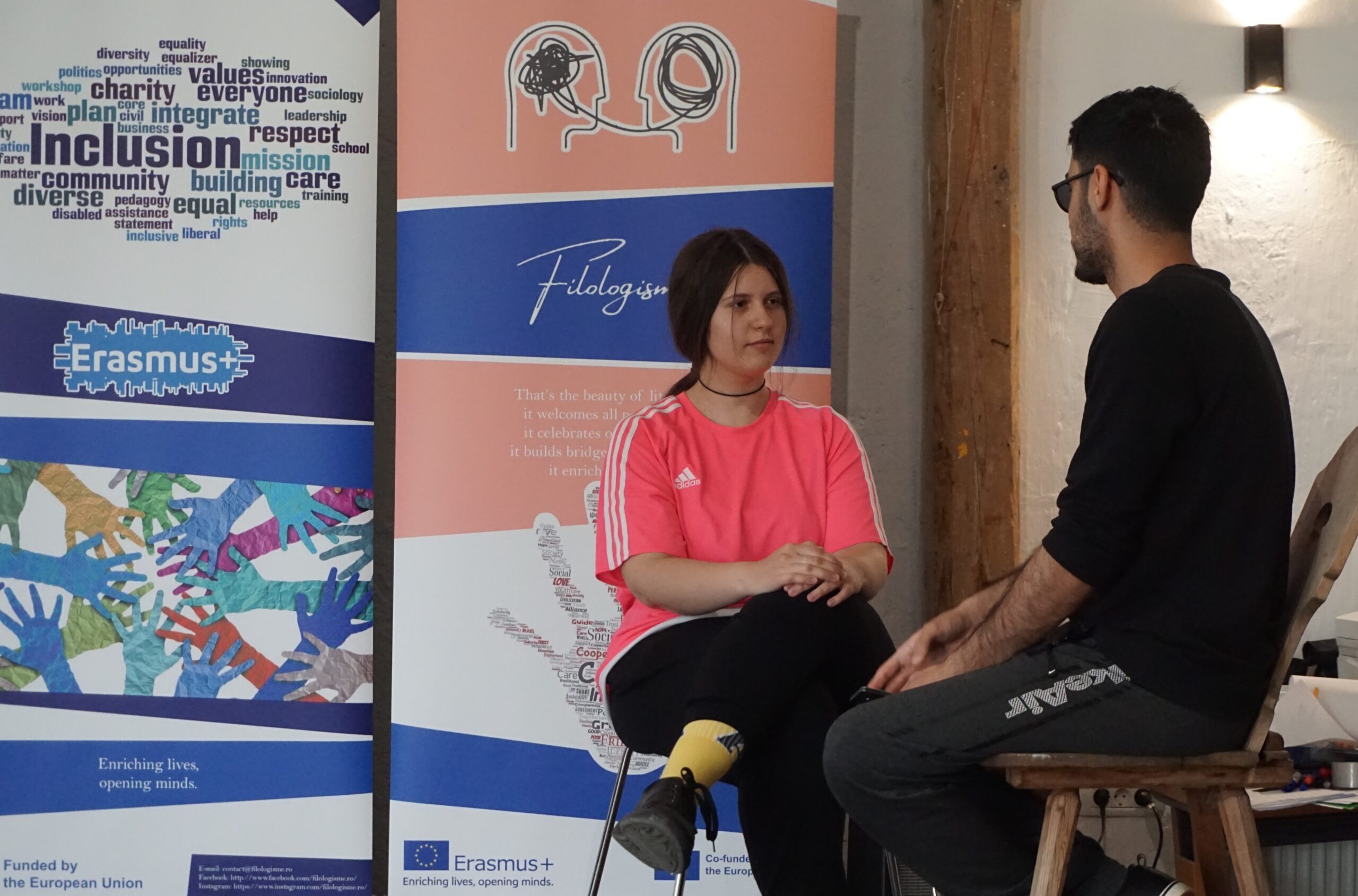Our participants believe strongly in the power of experiential learning, and our activities in the project EQUAL-Lit exemplified this belief! Please find below some testimonials in this regard:
It all began with an energizing icebreaker, a vibrant mix of volleyball, singing, and dancing that set the tone for our journey. As the day unfolded, we delved into a Native American myth that served as a metaphor for the dual nature of human intentions, represented by the good and bad wolves within us all.
We continued with a captivating social experiment and creative improvisation, where some of us took on the roles of individuals facing direct or indirect hate speech. This activity deepened our understanding of the impact of online hate speech and the importance of addressing it.
Our exploration then led us to Bucharest, where we embarked on a special and enlightening treasure hunt. This adventure allowed us to connect with the city, its culture, and its history, enhancing our appreciation for the rich tapestry of experiences.
As the day came to a close, we engaged in meaningful discussions, reflecting on our experiences and the valuable lessons we had learned. Each moment was a step forward in our journey to combat online hate speech effectively. (Sylvia, Greece)
Our day began with a warming-up massage activity, which was incredibly relaxing and energizing, setting a positive tone for the day ahead. In the formal Session 1, we delved into a discussion on competences, breaking them down into four basic components: skills, knowledge, attitude, and behavior. We emphasized how these components are interconnected and mutually dependent, all contributing to the development of competence. Our discourse encompassed Youthpass competences as well as the project’s objectives and the competences we aimed to foster.
The subsequent session focused on exploring the sources of hate speech. We engaged in group activities where we had to identify and elaborate on examples of hate speech sources, associating them with various characteristics such as religion, race, gender, social origins, nationality, and physical appearance/disabilities, while considering their historical context.
In the final session, we embarked on an improvisational theater workshop, serving as an introduction to the theory of anger, aggression, and violence in relation to hate speech. We initially played different roles before delving into the theoretical aspects. (Christos, Greece, and Nikolina, Croatia)

